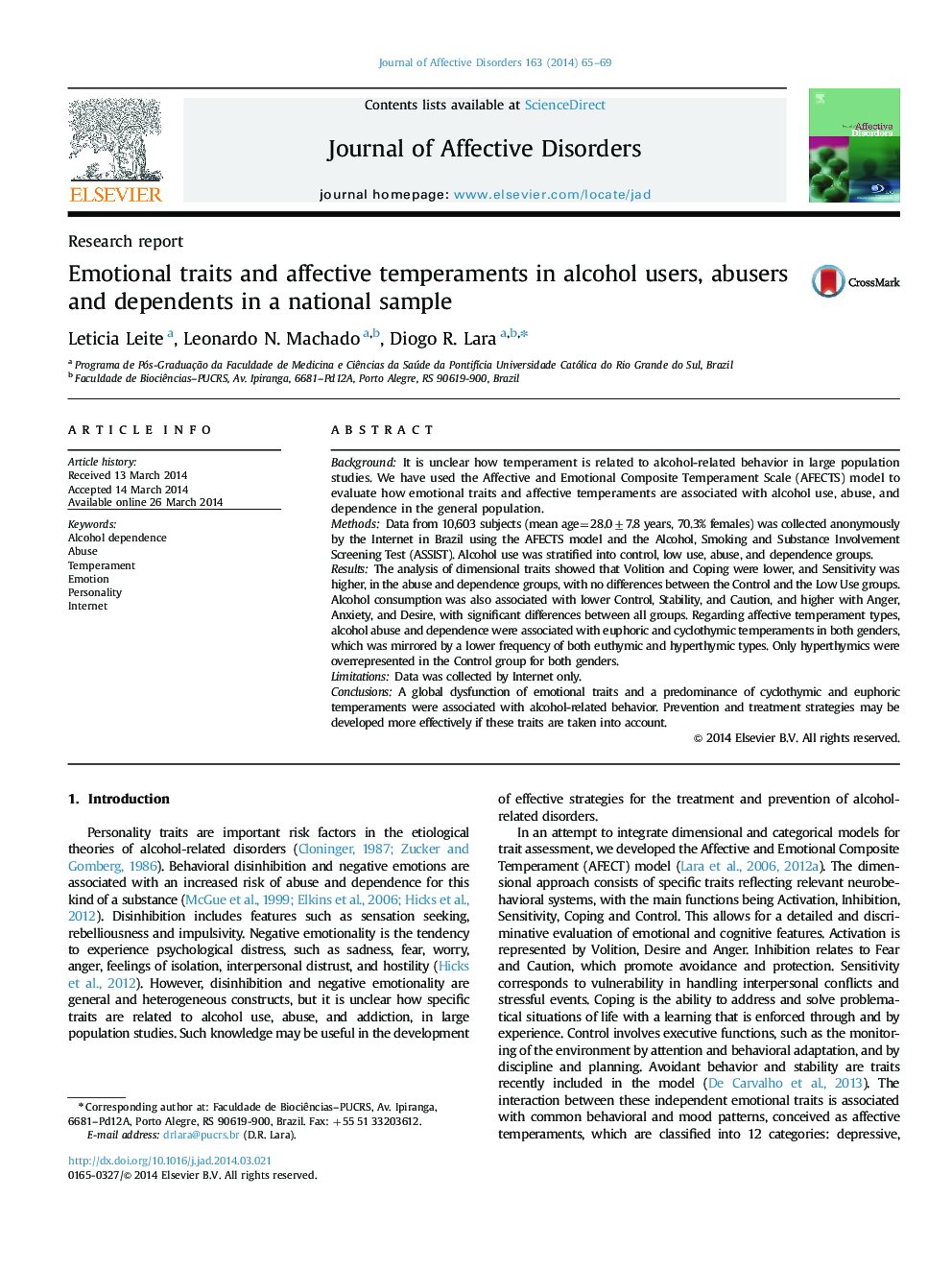| کد مقاله | کد نشریه | سال انتشار | مقاله انگلیسی | نسخه تمام متن |
|---|---|---|---|---|
| 6233063 | 1608162 | 2014 | 5 صفحه PDF | دانلود رایگان |
BackgroundIt is unclear how temperament is related to alcohol-related behavior in large population studies. We have used the Affective and Emotional Composite Temperament Scale (AFECTS) model to evaluate how emotional traits and affective temperaments are associated with alcohol use, abuse, and dependence in the general population.MethodsData from 10,603 subjects (mean age=28.0±7.8 years, 70.3% females) was collected anonymously by the Internet in Brazil using the AFECTS model and the Alcohol, Smoking and Substance Involvement Screening Test (ASSIST). Alcohol use was stratified into control, low use, abuse, and dependence groups.ResultsThe analysis of dimensional traits showed that Volition and Coping were lower, and Sensitivity was higher, in the abuse and dependence groups, with no differences between the Control and the Low Use groups. Alcohol consumption was also associated with lower Control, Stability, and Caution, and higher with Anger, Anxiety, and Desire, with significant differences between all groups. Regarding affective temperament types, alcohol abuse and dependence were associated with euphoric and cyclothymic temperaments in both genders, which was mirrored by a lower frequency of both euthymic and hyperthymic types. Only hyperthymics were overrepresented in the Control group for both genders.LimitationsData was collected by Internet only.ConclusionsA global dysfunction of emotional traits and a predominance of cyclothymic and euphoric temperaments were associated with alcohol-related behavior. Prevention and treatment strategies may be developed more effectively if these traits are taken into account.
Journal: Journal of Affective Disorders - Volume 163, July 2014, Pages 65-69
